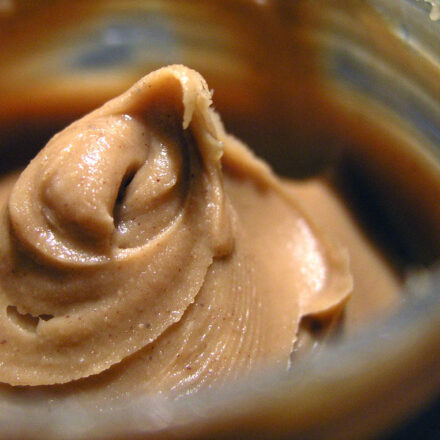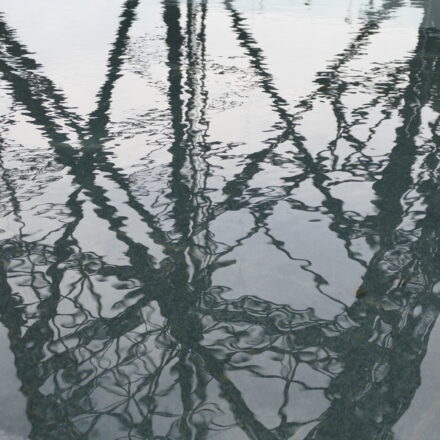Every now and then a case cracks open a delicious mix of intellectual property and commercial problems. Recent litigation by Barokes over “wine in a can” is one such example.
After centuries of drinking wine out of glass bottles (or ‘goon sacks’ [1]) two inventors took the plunge and developed revolutionary technology for “wine in a can”. Barokes Pty Ltd (Barokes) was incorporated to commercialise a premium wine in a can product.
In 2012, 60% of the equity in Barokes was acquired by a Japanese company, Daiwa Can Company (Daiwa). However, the relationship soured after a management deadlock over copycat cans in 2015. Since then, the parties have been embroiled in aggressive worldwide litigation.
These unique facts have created a cocktail of patent, confidential information, corporate governance and contract issues which provide some useful lessons for inventors and their lawyers. Keep reading for more (grape) juicy details.
The “Vinsafe” Patent
The Inventors, Anthony Barics and Gregory Stokes (hence the name “Bar-okes”) developed a wine packaging system known as “Vinsafe”. Vinsafe gives canned wine a longer shelf life than conventional aluminium cans.
Barokes holds, or is the applicant for Vinsafe patents in 17 countries, with priority dates commencing from 28 September 2001. Barokes licenses its Vinsafe technology to local wineries and to the Asian market. In Australia, you can pick up Barokes’ “wine in a can” at your local Dan Murphy’s:
Source: https://www.danmurphys.com.au/
The Acquisition of Barokes
Whilst the thought of sipping wine from a can sends shivers of snobbery down my South Australian spine, it seems that Japanese beverage consumers are less fussy. In fact, canned wine is so popular they are sold in convenient “two glass” cans in vending machines like these:

Source: Author’s iPhone
In about 2009, Mr Stokes heard on the grapevine that a “wine in a can” product was being sold in Japan by Daiwa. Whilst the details are not clear in the judgments delivered to date, it appears that Mr Stokes asked Daiwa to enter into a licence or stop selling the products. Daiwa responded with a proposal to participate in Barokes’ business.
After long negotiation, Daiwa acquired the majority shareholding in Barokes in 2012 for approximately AUD $18 million (Barokes Acquisition). After the Barokes Acquisition the shares in Barokes were held as follows:
- Daiwa held 60% of the shares;
- Knights Quest Pty Ltd (Knights Quest), controlled by Mr Stokes, held 26.7% of the shares; and
- SMS Management Pty Ltd (SMS Management), controlled by Mr Barics, held 13.3% of the shares.
The Copycat Cans
Daiwa now manufactures aluminium cans in the shape of bottles. Daiwa then supplies these cans to Monde Shuzo Ltd (Monde) who fill them with wine. Monde is a Japanese subsidiary of Daiwa.
An example of these products are Petit Monteria Rouge (red wine), Petit Monteria Blanc (white wine) and Petit Monteria Sparkling (sparkling wine). An advertisement for these products appears below:

Source: https://www.mondewine.co.jp/petitmonteria/
The Management Deadlock
At a Board meeting in January 2015, Mr Stokes proposed that Barokes commence proceedings against various companies including Monde for patent infringement. Unsurprisingly, Mr Yamashita and Mr Ikeda (Daiwa appointees on the Board of Barokes) disagreed. As majority shareholders, Daiwa had the voting power to prevent Barokes from instituting actions, particularly against companies it trades with (and in some cases, owns).
Barokes now claims Daiwa cut secret deals with other Japanese beverage companies to sell copycat cans and the Barokes Acquisition was merely a pretext to gain access to their IP.
The Proceedings
In what can only be described as a litigious marathon, I found over seven “Barokes” matters in Courts around the world…
June 2015 – Victorian Supreme Court – The “First Derivative Proceeding”
Mr Stokes (through Knights Quest) alleged Daiwa made representations about the provision of funds before and after the Barokes Acquisition. In order to enforce these representations, Mr Stokes sought leave under s 237 of the Australian Corporations Act to bring proceedings in the name of Barokes against Daiwa.
Leave was refused by Associate Justice Efthim on 30 October 2015 (see reasons here).
July 2015 – Chengdu Court – The “Chinese Patent Proceedings”
Mr Stokes caused Barokes to commence patent infringement proceedings in Chengdu, China against distributors, including Seven-Eleven (Chengdu) Co Ltd. Barokes sought to restrain Seven-Eleven Chengdu and other distributors from selling Monde products which allegedly infringed the Vinsafe patent.
August 2015 – Tokyo District Court – the “Japanese Patent Proceedings”
Notwithstanding a defeated company resolution, Mr Stokes caused Barokes to commence patent infringement proceedings in the Tokyo District Court, Japan against Daiwa, Monde, Itochu-Shokuhin Co Ltd (Itochu Shokuhin) and Seven-Eleven Japan Co Ltd (Seven-Eleven Japan).
Barokes alleged the defendants jointly committed a tort when:
- Daiwa manufactured and sold cans which infringed the Vinsafe patent;
- Monde used the cans and manufactured products which infringed the Vinsafe patent;
- Itochu-Shokuhin purchased infringing products from Monde and sold them to Seven-Eleven Japan; and
- Seven-Eleven Japan sold infringing products to consumers.
Victorian Supreme Court – The “Winding up Proceeding” and the “Oppression Proceeding”
On 24 August 2015, Daiwa commenced proceedings seeking to wind-up Barokes on just and equitable grounds.
On 26 August 2015, Knights Quest and SMS Management retaliated and alleged they were oppressed by Daiwa and sought orders allowing Mr Stokes to continue the Japanese Patent Proceedings in the name of Barokes.
These two matters were listed for joint trial before Judd J on 27 January 2016. An undertaking was given to Judd J which provided that, pending judgment, Mr Stokes would manage Barokes in the ordinary course of its business (Undertaking). In other words, Mr Stokes undertook not to file any more worldwide proceedings.
Victorian Supreme Court – The “Anti-suit Injunction Proceeding”
Determined to stop the Japanese Patent Proceedings, Daiwa applied for an interlocutory “anti-suit” injunction in the Supreme Court of Victoria preventing Barokes and Mr Stokes from:
- pursuing the Japanese Patent Proceedings; and
- commencing proceedings against Daiwa in Australia or overseas in relation to Barokes’ intellectual property rights.
A short injunction was granted by Justice Sifris on 11 September 2015 (see reasons here). This injunction prevented pursuance of the Japanese Patent Proceedings until judgment in the Winding Up Proceeding and the Oppression Proceeding was handed down.
However, the hearing of the Winding Up Proceeding and Oppression Proceeding was subsequently adjourned and orders were made which enabled the Second Derivative Proceeding (see below) to be heard.
June 2016
Victorian Supreme Court – The “Second Derivative Proceeding”
Knights Quest and SMS Management applied nunc pro tunc (the fancy word for “retroactively”) for leave to continue the Japanese Patent Proceedings in the name of Barokes.
Leave was granted by Justice Sifris on 7 June 2016 (see reasons here). His Honour held that resolving a deadlock is “obviously” in the best interests of the company. When addressing whether there was a serious issue to be tried, his Honour made the following comments:
“The claim for infringement of the Vinsafe patent is a serious case. It involves sufficiently complex technical and factual matters that make it extremely difficult, inappropriate, undesirable and indeed unfair for a court to conclude, in the face of rival expert reports, that the claim is not a serious one. There is no single straightforward ‘knock out point’. Barokes may well fail, but it is entitled … to have the argument.”
Japan Patent Office – The “Japanese Invalidity Application”
At some point along this treacherous litigation timeline, Daiwa filed a challenge to the validity of Baroke’s Japanese patent. A decision is expected by mid-2017.
The existence of this challenge has altered the progress of the various Victorian proceedings. Specifically, the Orders made in the Second Derivative Proceeding were initially limited to the Japanese Patent Proceedings. The other claims (including the Chinese Patent Proceedings) were to be dealt with in “Phase 2” of the Second Derivative Proceeding. The parties agreed that “Phase 2” would not proceed until the Japanese Invalidity Application was determined.
November 2016 – Victorian Supreme Court – The “Amendment to the Undertaking”
On November 2016, Knights Quest and SMS Management applied to vary the Undertaking to allow Barokes to send formal demands to foreign infringers. This variation was made to preserve limitation periods and protect Barokes’ interests pending determination of the Japanese Invalidity Application.
Leave to amend the Undertaking was granted by Sifris J on 9 December 2016 (see reasons here).
2017
There have been no judgments to date. However, with both parties scraping the barrel of potential claims it seems there is no end in sight for Barokes.
The Lessons
Careful due diligence and negotiation
- Confidential information (e.g. access to technology) should not be shared until the terms of the transaction are agreed. If information sharing is an essential part of the negotiation process then the parties’ rights and obligations with respect to the information should be recorded in an agreement or a temporary restricted license.
- Any spoken agreement must be incorporated in the final written agreement(s). Courts rarely ‘read-in’ terms based on the subjective intentions of the parties. Parties should take off their rosé coloured glasses (and trust no one!).
- Drafters should ensure the parties’ rights and obligations with respect to IP are clearly set out in any written agreement. Some questions to consider include:
- Who is the current legal owner of all of the IP?
- Who is the IP currently licensed to (whether express or implied)? How will the transaction effect these license agreements? Will the transaction trigger any “change of control” provisions in these licenses?
- How will the IP be licensed in the future? What decision-making process must the Board undertake in order to license the IP?
- Multi-national litigation is costly. Where there are foreign parties, communication is imperative. Parties should make an effort to understand the entity they’re negotiating with. For example, in Barokes’ case, Daiwa said in evidence that pursuing a shareholder or trade partner is unheard of in Japan. This cultural business norm ought to have influenced the negotiation of the terms of the Shareholders Agreement.
Corporate governance matters
- Just because a party invents a product does not always mean they have the rights to enforce it. In Barokes’ case the Shareholders’ Deed stated that a Special Majority (75%) shareholder approval was required to instigate litigation. Whilst this did not stop Mr Stokes from pursuing litigation, it seriously curtailed the jurisdiction of the Court to consider any claims. Justice Sifris made this comment in the Anti-suit Injunction judgment (at [63]):
“…although Barokes may have a good case so far as the Japanese [Patent] Proceedings is concerned, and is entitled, and indeed perhaps obliged, to prosecute such a claim, the corporate forum and structure, and attendant rights and duties that flow, must be respected. Directors cannot go out on a frolic of their own. A company cannot commence a proceedings unless it is authorised to do so.”
- In this respect, the simple lesson is a party should avoid selling the majority shareholding if they want to retain control of any IP. There is no point in owning a patent if its use is ultimately controlled by other shareholders.
Intellectual property is an important feature of most modern commercial transactions. Don’t let the Barokes saga go down as a “David and Goliath” example of protracted litigation (and a very long IP Whiteboard blog). Let it be a lesson for all – be savvy, complete proper due diligence and can the litigation before it happens.
[1] Nobody at IP Whiteboard drinks goon sacks … anymore.









